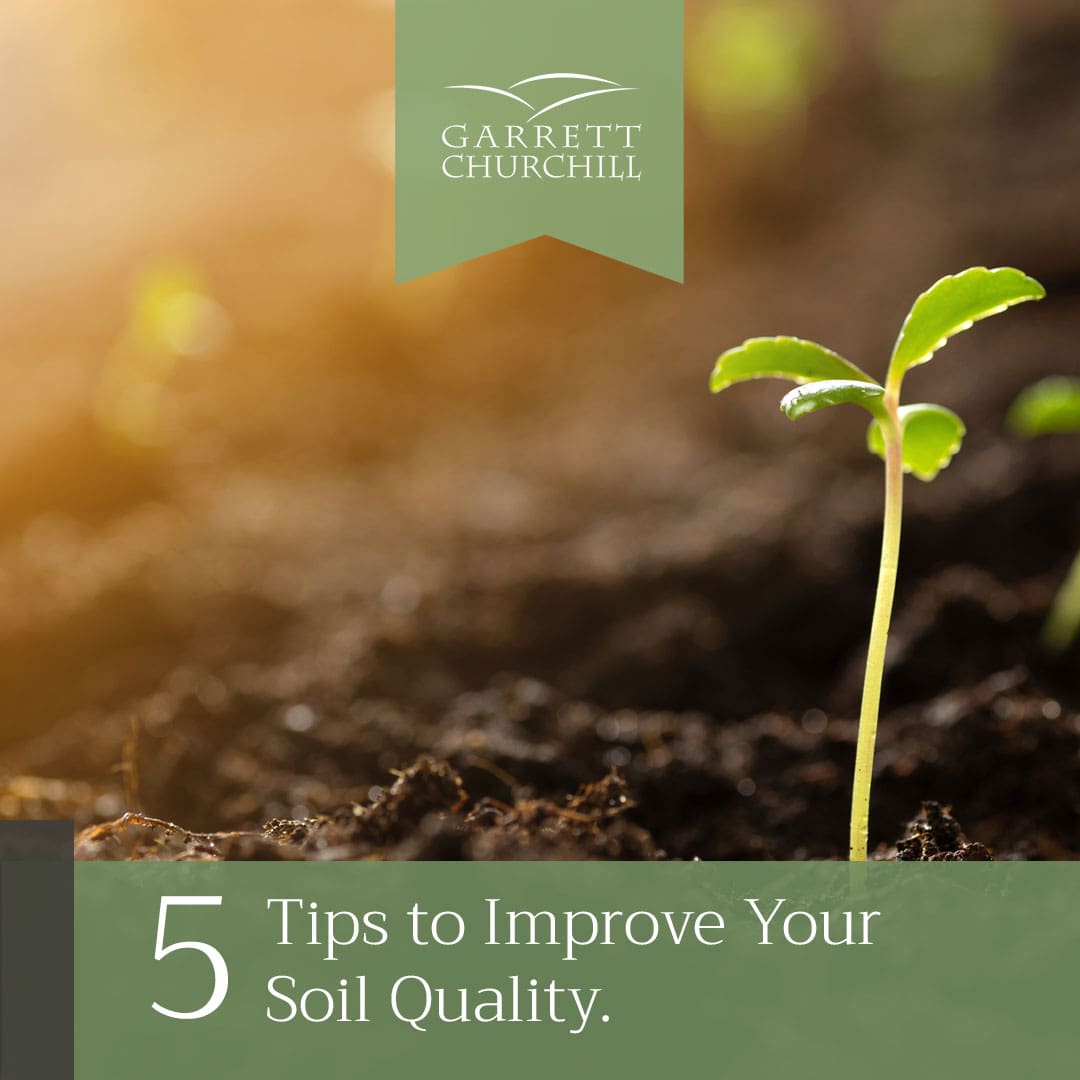5 Tips to Improve Your Soil Quality
A healthy environment is necessary for growth; nothing demonstrates how true that is more than a beautiful garden. Gardens are a source of pride for many homeowners, some enjoying them for how they look and others reaping the edible rewards from their hard work. But, in order to have a healthy garden, you need well-nourished soil.
Read on for five ways to revitalize your garden’s soil for the healthiest, happiest plants:
1. Use Compost
Compost is made up of broken-down organic matter that you can blend with your garden soil to improve its health. It is typically composed of a diverse mixture of ingredients, including kitchen scraps (fruit and vegetable peels, coffee grounds, eggshells), yard waste (grass clippings, leaves, twigs), and other organic materials like shredded paper, cardboard, and straw.
Similar to vitamin supplements, these organic compounds contain all the necessary nutrients to feed your soil and garden. Compost can also help keep your soil loose and promote good drainage, making your plants more likely to get the right amount of fresh air and water.
Compost even acts as food for other organisms that are beneficial to your garden, like earthworms. The earthworms and your soil have a symbiotic relationship that every gardener should nurture as much as possible.
2. Rotate Crops Annually
For vegetable gardeners, planting your crops in different places in your garden each year can prevent them from depleting your soil’s nutrients. It also makes it more challenging for pests and diseases to thrive.
If you’re concerned about soil quality, you can also introduce specific plant groups to areas you think could be unhealthy. Legumes, for example, help to fix nitrogen in the soil, giving it a boost in nutrients and making it a more viable area to grow your plants the next time you rotate.
3. Add Mulch
Mulch offers a multitude of benefits for gardeners of every skill level. Adding mulch to your garden can help it retain moisture and nutrients while also fertilizing the soil. It also makes it less likely for weeds to grow, so it’s an investment in your plants’ health, not just your soil quality.
Which mulch you should use depends on your climate and the time of year. Generally, you will want to ensure your soil is protected from both very cold and very hot temperatures.
Additionally, mulch breaks down over time, it enriches the soil with organic matter, enhancing its fertility and overall health. If you would like a recommendation for your yard, a landscape professional can help.
4. Incorporate Cover Crops
The point of a cover crop is to make life easier for the rest of your garden. These holistic heroes of the plant world can improve soil quality, smother weed growth, mitigate disease and pest outbreaks, and slow erosion.
That’s too many benefits to ignore, so finding yourself a good cover crop is an excellent way to improve your garden overall. Aim to sow cover crops in late summer so that they can grow throughout winter.
Some good examples of popular cover crops include certain grasses, legumes, and mustards. Each family has unique benefits; for example, legumes have a stronger influence over nitrogen levels, while grasses are perfect for adding more organic matter to the soil.
5. Prevent Soil Compaction
It doesn’t matter how healthy your soil is if your plants can’t access its nutrients. When soil is compacted, your plants have to work harder to grow their roots into the soil. This often results in fewer roots and therefore, fewer nutrients taken up by your plants.
You can prevent soil compaction by avoiding walking on your soil. Create walkways or paths that make it easy to access each plant without stepping on your garden’s soil.
You should also avoid working with wet soil as much as possible. Wet soil, when tilled, can stick together and make it difficult for precious oxygen to reach the roots of your plants.
If you have soil rich in clay, pay special attention to how dense your soil is, as winter weather and heavy rain can compact it very quickly. Add organic matter as needed to help break it up.
Build Your Dream Garden with Professional Landscaping Help
Our knowledgeable team has the techniques and skillset to turn any outdoor space into a blooming, bountiful oasis. Reach out to us today to learn more.
